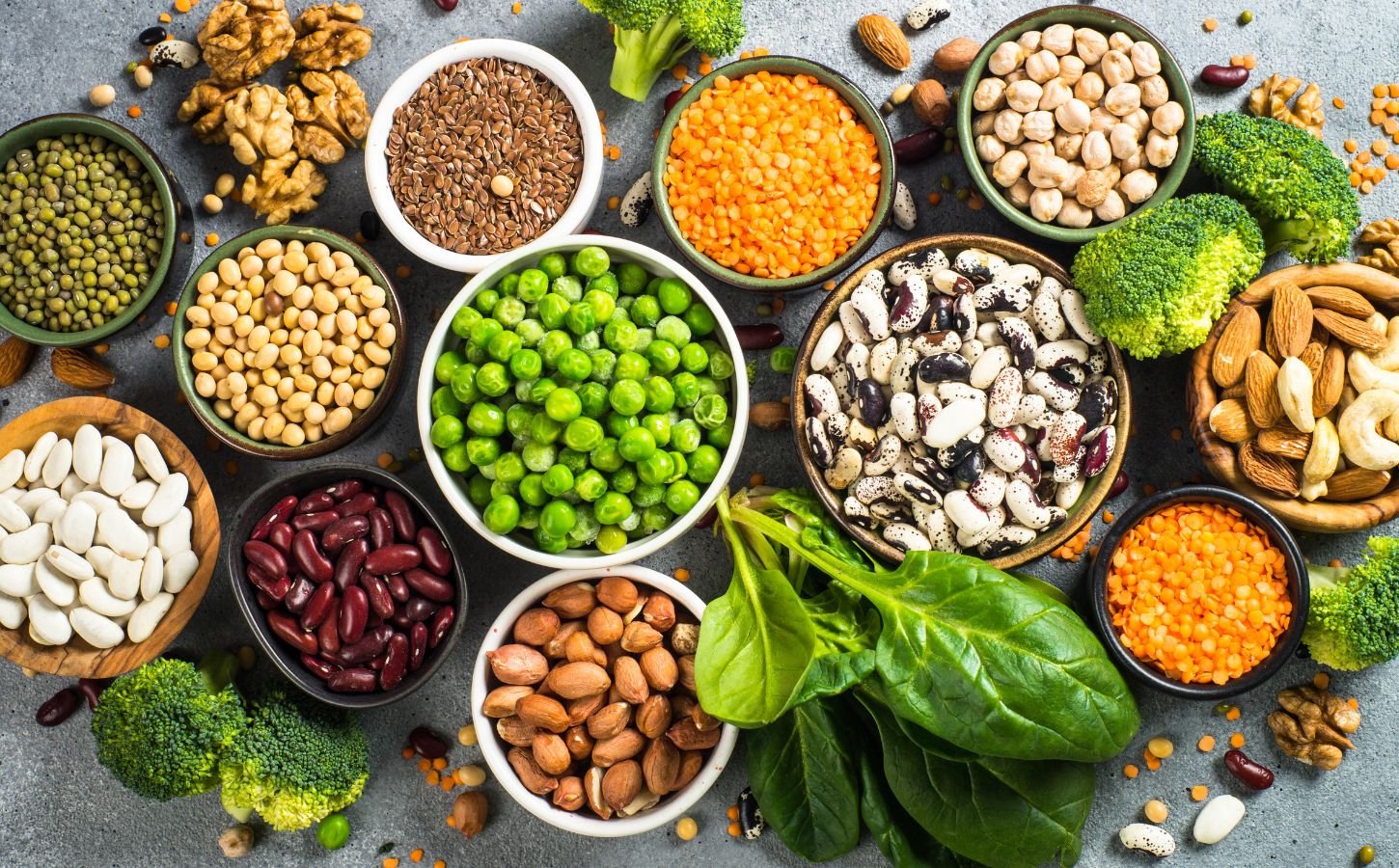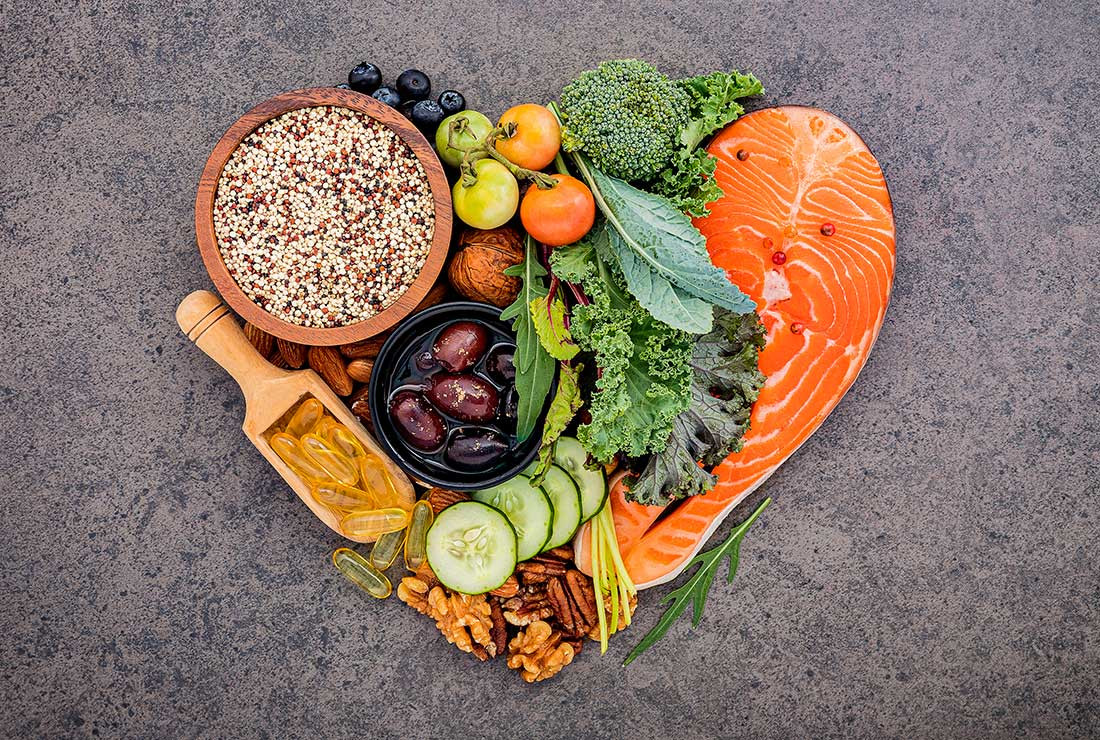Best Brands for Gluten Free BBQ Sauce in Chicago
All Concerning Healthy And Balanced Food: Advantages of Enjoying Plant Based Alternatives
The conversation bordering plant-based diet regimens has actually gotten considerable interest recently. Lots of individuals are exploring the potential health advantages, dietary benefits, and environmental impacts linked with these nutritional options. As people become extra mindful of their food's impact on wellness and sustainability, questions emerge concerning the functionalities of adopting such a way of living. What details modifications can one expect, and just how might these options reshape not just individual health yet likewise the planet's future?
Recognizing Plant-Based Diet Plans
Although lots of people connect plant-based diets mostly with vegetarianism or veganism, these diet plans can encompass a large range of consuming patterns that prioritize entire, minimally processed plant foods. Such diets usually include fruits, veggies, whole grains, seeds, vegetables, and nuts, while removing or limiting pet products. This adaptability allows individuals to tailor their dietary selections according to individual preferences and nutritional needs. Some might take on a primarily plant-based diet regimen while still occasionally consuming meat or dairy, usually described as a flexitarian strategy. The emphasis continues to be on integrating even more plant foods, which can cause a diverse variety of dishes and tastes. Comprehending these numerous analyses of plant-based eating is essential for appreciating its access and appeal in contemporary food culture.
Wellness Benefits of Plant-Based Foods
The health benefits of plant-based foods are considerable, supplying a nutrient thickness benefit that sustains total well-being. Research suggests that these foods can enhance heart health and wellness and play a necessary function in reliable weight monitoring. By including much more plant-based choices, people might enhance their dietary options and promote long-lasting wellness.
Nutrient Density Advantage
Nutrient thickness plays an essential role in the health and wellness benefits of plant-based foods, making them an engaging option for those seeking a balanced diet. Plant-based foods, such as fruits, vegetables, legumes, nuts, and entire grains, are commonly abundant in necessary vitamins, minerals, and anti-oxidants while being lower in calories. This high nutrient thickness permits people to take in fewer calories while still fulfilling their dietary demands. In addition, these foods are packed with dietary fiber, promoting digestion health and wellness and helping in weight management. By incorporating nutrient-dense plant-based alternatives, customers can improve their general health and wellness, support their immune systems, and reduce the threat of chronic diseases. Inevitably, the nutrient thickness of plant-based foods highlights their importance in a health-conscious way of life.
Heart Health Renovation

Weight Administration Support
In enhancement to advertising heart wellness, a plant-based diet plan can significantly aid in weight monitoring. This dietary approach highlights whole foods such as fruits, vegetables, beans, nuts, and whole grains, which are usually reduced in calories and greater in fiber compared to animal-based items. The high fiber content assists enhance satiation, minimizing overall calorie intake. Plant-based diet regimens are commonly abundant in crucial nutrients while low in undesirable fats, making it easier to preserve a healthy and balanced weight. Research indicates that people who embrace a plant-based way of living tend to have lower body mass indexes (BMIs) and experience more effective weight reduction contrasted to those that take in meat-heavy diet regimens. Consequently, accepting plant-based choices is a tactical choice for efficient weight monitoring
Nutritional Worth of Plant-Based Ingredients
Plant-based components her explanation are rich in necessary nutrients, supplying a varied array of vitamins, minerals, and antioxidants that add to overall health and wellness. A comparison of protein sources reveals that while animal products are frequently seen as exceptional, numerous plant-based alternatives give ample healthy protein and various other beneficial substances. view publisher site Recognizing the dietary worth of these active ingredients can aid people make notified dietary choices.
Important Nutrients in Plants
Nutrient-rich ingredients found in plants offer a varied selection of crucial nutrients that add considerably to general health and wellness. These ingredients are abundant in vitamins A, C, and K, which sustain immune feature, vision, and blood clotting, respectively. On top of that, plants supply crucial minerals such as magnesium, calcium, and potassium, vital for heart health and wellness, muscle feature, and bone stamina. The presence of fiber in plant-based foods help digestion and advertises a healthy and balanced gut microbiome. Anti-oxidants, discovered abundantly in veggies and fruits, assistance fight oxidative anxiety and decrease swelling. Lots of plant foods are reduced in calories yet high in nutrients, making them an outstanding option for those seeking to maintain a healthy weight while guaranteeing excellent nutrient consumption.

Contrasting Healthy Protein Sources
Protein resources differ considerably in their dietary accounts, with plant-based active ingredients providing unique advantages. Unlike pet proteins, which usually contain saturated fats and cholesterol, plant healthy proteins often tend to be lower in these harmful parts. Legumes, nuts, seeds, and whole grains are rich in important amino acids, fiber, vitamins, and minerals. For instance, lentils offer high healthy protein material along with substantial iron and folate, while quinoa is a full protein, supplying all nine essential amino acids. Furthermore, plant-based proteins are often accompanied by antioxidants and phytochemicals that support total health and wellness. The change to plant-based protein resources not only improves dietary intake however also lines up with sustainable nutritional methods, reducing ecological effect and advertising long-term wellness advantages.
Ecological Influence of Plant-Based Consuming
As understanding of environment change grows, several individuals are discovering sustainable dietary choices that can greatly lessen their ecological footprint. Plant-based consuming has become a significant factor to reducing greenhouse gas exhausts, which are primarily connected with livestock production. The farming of fruits, vegetables, grains, and vegetables commonly requires fewer sources, such as water and land, compared to animal farming. Furthermore, plant-based diets can result in reduced deforestation, as much less land is required for grazing livestock or expanding animal feed. By changing towards plant-based choices, consumers can sustain biodiversity and advertise healthier environments. Generally, welcoming plant-based eating not just advantages personal health and wellness however likewise stands for a crucial action towards ecological sustainability and conservation initiatives.
Conquering Common Misconceptions
While many individuals recognize the advantages of a plant-based diet, several misunderstandings usually hinder them from completely accepting this way of life. A common idea is that plant-based diets do not have enough protein; nevertheless, numerous plant sources, such as legumes, nuts, and tofu, give enough protein. Additionally, some think that this diet regimen is expensive, when as a matter of fact, staples like beans, rice, and seasonal veggies can be fairly affordable. One more misunderstanding is that plant-based eating is extremely restrictive, whereas it really offers a diverse range of foods and flavors. Many stress that a plant-based diet regimen might lead to shortages, yet with appropriate preparation, people can obtain all necessary nutrients, consisting of minerals and vitamins, while appreciating a vast range of tasty dishes. Vast Tips for Transitioning to a Plant-Based Way of living
Making the change to a plant-based way of living can be an improving experience, though it frequently requires some assistance to navigate the initial modifications. Individuals are encouraged to begin gradually, integrating even more fruits, veggies, beans, and whole grains into their dishes while lowering meat and dairy products usage. Meal planning is crucial; preparing a weekly food selection can assist reduce the modification and stop last-minute unhealthy options. Discovering cooking approaches and brand-new recipes can also keep and improve the experience excitement concerning plant-based consuming. In addition, joining support system or areas can give inspiration and share beneficial suggestions. Staying informed concerning nourishment warranties well balanced dishes, stopping shortages while cultivating a healthy, rewarding plant-based way of living.

Delicious Plant-Based Meal Ideas
Checking out delicious plant-based meal concepts can inspire people to embrace a much more nourishing diet. One popular choice is a passionate quinoa salad, featuring cherry tomatoes, cucumber, and a tangy lemon-tahini dressing. Another fave is a full-flavored lentil stew, loaded with carrots, celery, and aromatic herbs, perfect for a reassuring dinner. For breakfast, over night oats made with almond milk, chia seeds, and topped with fresh berries provide a nourishing begin to the day. Furthermore, a lively veggie stir-fry with tofu and a range of colorful veggies can be a fast yet pleasing dish. Luscious avocado toast on whole-grain bread, sprayed with seasonings and seeds, uses a basic yet delicious treat. These dishes display the range and splendor of plant-based consuming.

Often Asked Inquiries
Can a Plant-Based Diet Offer Enough Protein?
The inquiry of whether a plant-based diet regimen can give adequate healthy protein is typical. Various sources, consisting of legumes, nuts, seeds, and whole grains, can satisfy healthy protein requires effectively, sustaining a balanced and nutritious diet regimen for individuals.
Are Plant-Based Diets Ideal for Kid?
The viability of plant-based diets for kids depends on careful preparation. Ample nutrients should be assured, consisting of vitamins, healthy proteins, and minerals. With correct guidance, such diet plans can sustain healthy development and development in children.
Just how Do I Eat Out on a Plant-Based Diet?
Eating in restaurants on a plant-based diet regimen entails looking for dining establishments with diverse food selections, requesting modifications, and discovering vegan-friendly choices. Planning in advance and connecting dietary preferences can boost the dining experience while maintaining nutritional options.
What Are Usual Allergens in Plant-Based Foods?
Common irritants in plant-based foods consist of soy, gluten, nuts, and seeds - Plant Based Chicken. People following a plant-based diet must recognize these irritants and check out tags meticulously to avoid negative reactions and guarantee safe usage
Can Plant-Based Diets Assist With Weight Loss?
Study suggests that adopting a plant-based diet plan may assist in weight loss because of its commonly lower calorie density and greater fiber content. This mix can boost satiety, aiding individuals handle their calorie consumption successfully. Numerous look at this site individuals link plant-based diet regimens mostly with vegetarianism or veganism, these diet regimens can include a wide array of consuming patterns that prioritize entire, minimally refined plant foods. Nutrient thickness plays an essential function in the wellness advantages of plant-based foods, making them an engaging option for those looking for a well balanced diet plan. Plant-based diet plans have been shown to noticeably boost heart wellness, as they frequently include elements that sustain cardio feature. In addition to advertising heart health and wellness, a plant-based diet can considerably assist in weight administration. A typical belief is that plant-based diets do not have enough protein; however, countless plant resources, such as legumes, nuts, and tofu, provide enough protein.